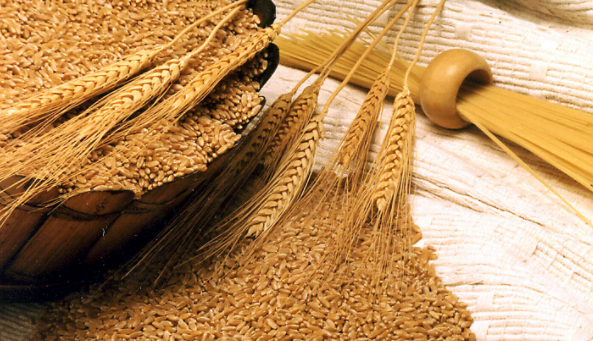Industry stakeholders have asked the federal government to suspend the 15 percent levy imposed on wheat grain importation to avert production and major food inflation crisis.
The call was made by the stakeholders in a recent report on the global wheat market following the war between the two top wheat exporting countries – Russia and Ukraine.
According to them, the multifaceted value chain crises, including the shortage of foreign exchange, mounting freight charges, and hike in the price of diesel further worsened by the war, continue to take a heavy toll on the wheat value chain.
The report showed that the price of wheat in the global market rose to $1,000 per bushel in March 2022 from $761.25 in January.
Adding to that, the millers are expected to spend more on shipping the commodity from the exporting countries as their combined freight bill prediction jumped from N21.6 trillion in 2019 to N28.8 trillion in 2021.
“The demand for the wheat-based products, being fairly price-elastic, implies that the burden of every new rise in costs is primarily absorbed by the millers and bakers,” the report said.
“The upward trend in the global wheat and freights costs continues to frustrate the millers, who have for long borne the cost burden to keep the retail price stable and avoid passing on the costs to the poor consumers, who rely heavily on wheat-derivative foods such as bread, which remains a significant part of their daily diet.
“A basket of similar food commodities has increased in price by an average of over 50 percent, and bread prices have only increased by 30 percent. The millers and bakers have borne the rest of the inflationary burden.
“Under the present circumstances, anyone can guess how much longer they can keep prices moderate.”
Arguing for the removal of the 15 percent levy in a recent interview, Jude Okafor, national secretary-general, association of master bakers and caterers of Nigeria (ABCON), said discussions have been had with the government on the matter.
“We had earlier made a plea to the government to cancel the 15 percent wheat (cassava) levy.”
The stakeholders said the 15 percent levy was meant to drive up local cassava production to the point of substituting cassava flour for wheat flour in most bakery production.
However, according to them, there has been no significant improvement in the cassava value chain since the introduction of the cassava substitution policy and the levy.
Considering the crisis in Ukraine and the global food crisis, the stakeholders called on the Nigerian government to reconsider the removal of the 15 percent wheat import levy as “this is necessary to prevent a wider supply chain breakdown and recession.”
Measures proposed by the stakeholders to help the millers, bakers, and consumers include increased access to forex at the import and export (I&E) window, allowance for tax concessions in line with the key backward integration programmes index, and the provision of logistic support.
In addition, the stakeholders proposed the wider adoption of the agriculture value chain intervention model developed by the Senegalese government; which provides access to key inputs such as seeds, fertilizers, and technical and marketing assistance for local smallholder farmers.
